

Infertility is becoming increasingly common in Africa, with a 16.4 percent rate across many regions. As a result, infertility treatment has become crucial for those looking to conceive. However, not everyone in the country has access to these treatments due to high costs, long waiting times, and a lack of advanced technology.
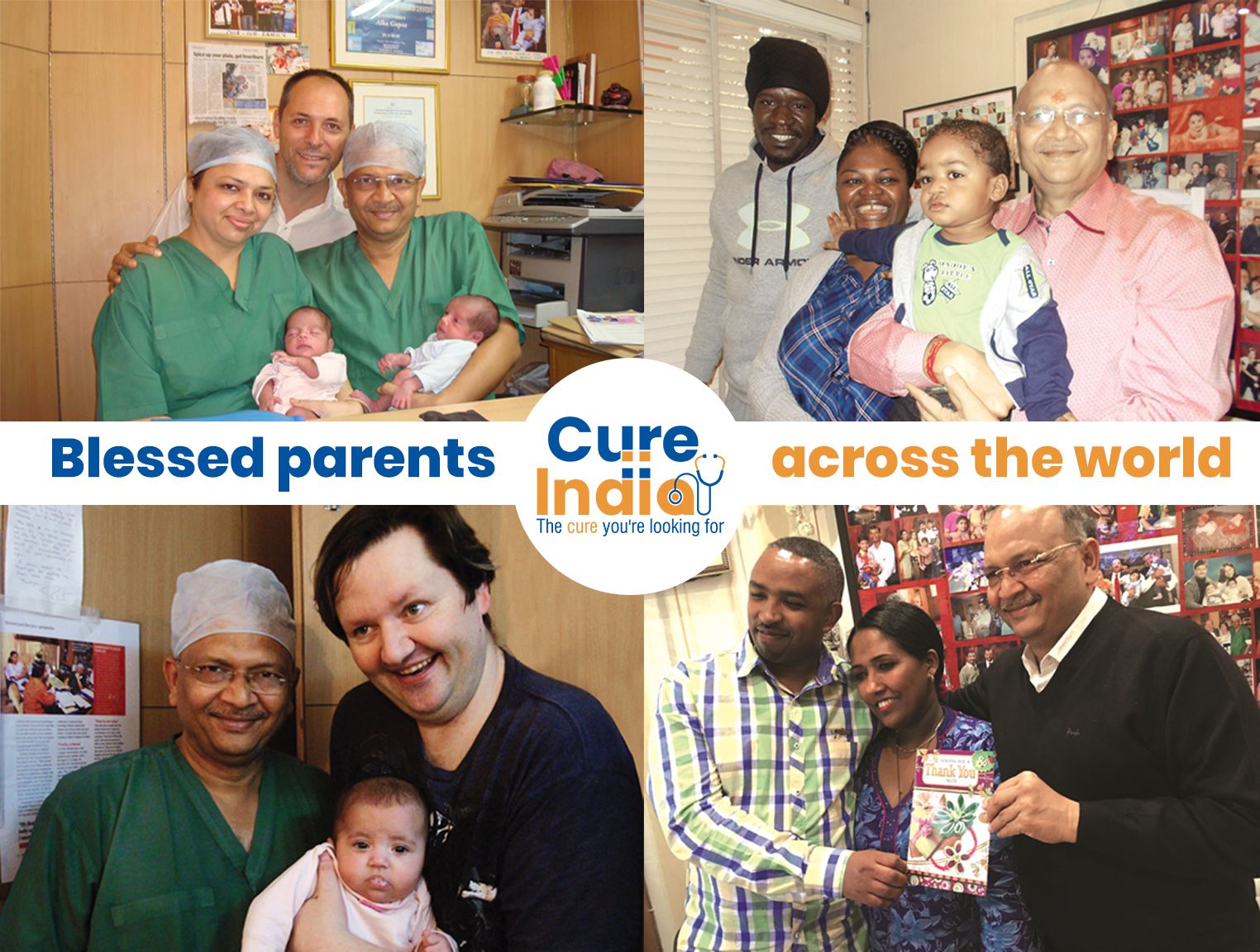
Because of these challenges, many African couples are choosing to travel to countries like India for vitro fertilization treatment. India, known for its top IVF clinics and skilled doctors, has become a prime destination for IVF procedures for Africans. Not only are the treatments affordable, but they are also provided by some of the best infertility specialists in India.
As a result, many couples from African countries such as Ghana, Congo, Ethiopia, Tanzania, and Cameroon travel for in vitro fertilization treatment in India.
In vitro fertilization treatment is a type of assistive reproductive technology (ART) or female infertility treatment in which the egg is combined with the sperm outside the human body, in vitro. The fertilized egg is called is known as an embryo. The embryo is then frozen for storage and later transferred to the woman’s uterus.
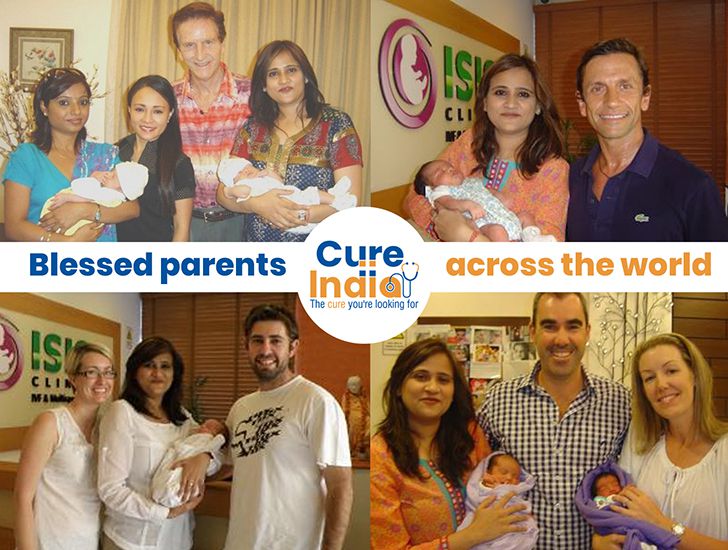

We have had patients from all over African nations like Cameroon, Kenya, Uganda, Cote d'ivoire, Eritrea, Congo, Guinea and others.
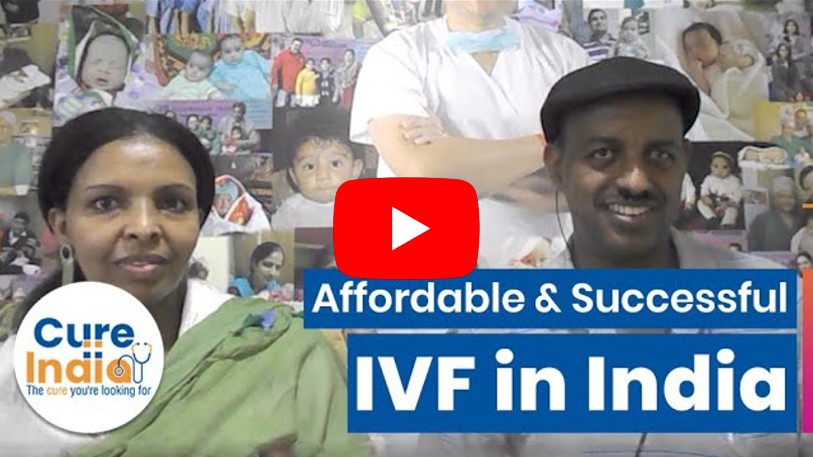
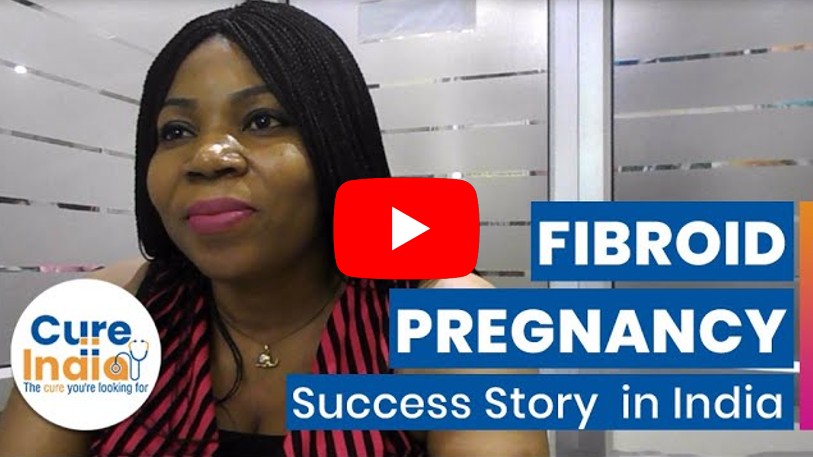
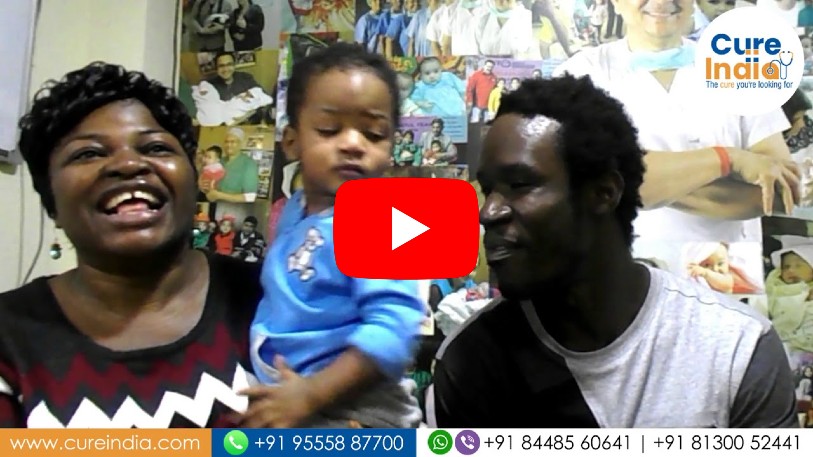
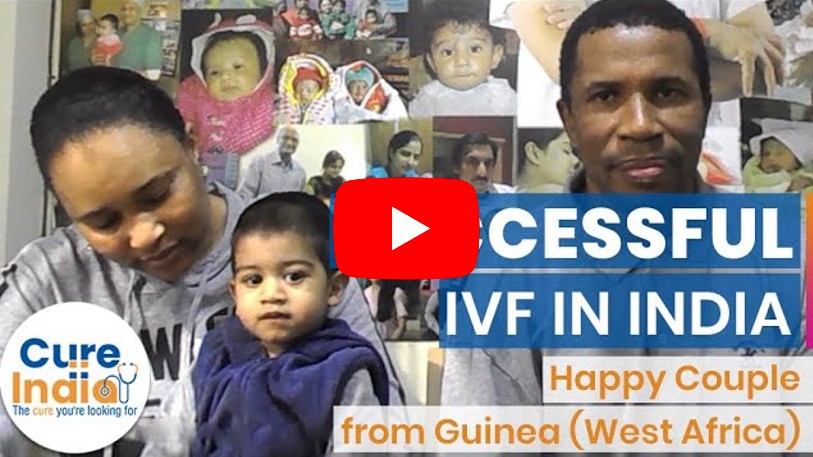

The first step in the IVF procedure is called stimulation, also called super ovulation where medical are given to the woman to boost egg production. Usually, only one egg is produced per month but these medical boost the production of eggs and multiple eggs are released. The women undergo transvaginal ultrasounds to examine the ovaries and blood tests are done to keep a check on the hormonal levels.
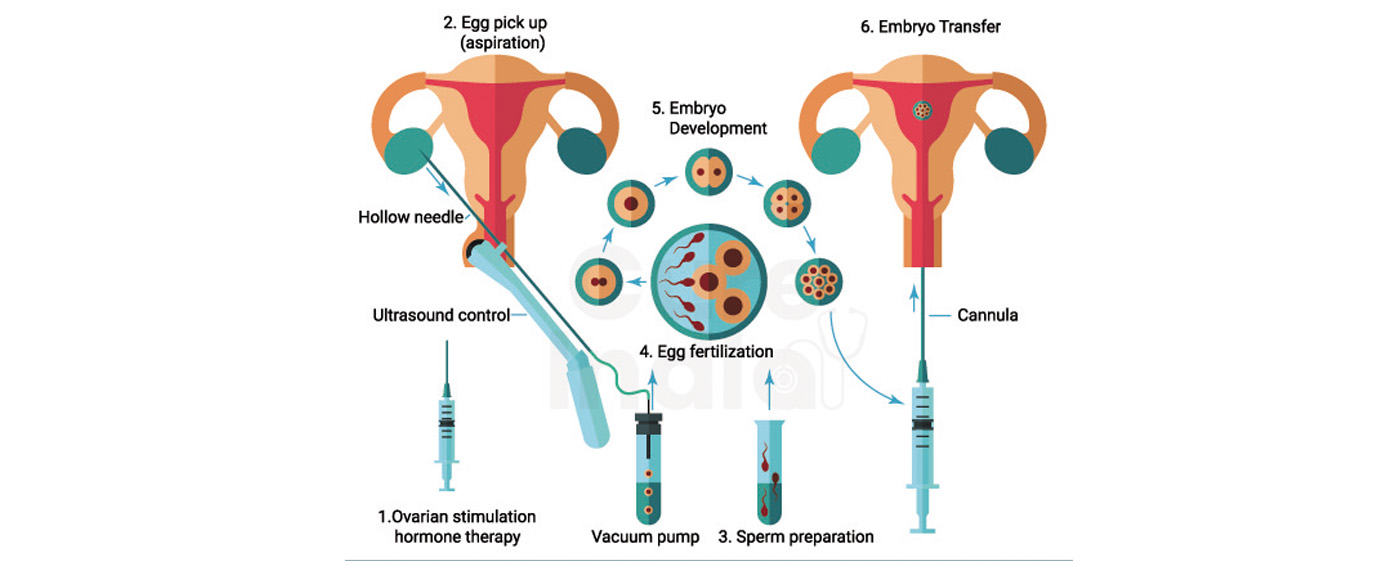
A minor surgery is carried out to extract the eggs from the woman's body. If the woman is not able to produce eggs, then the donated eggs are used for further IVF procedure.
The third step comprises of insemination and fertilization. The sperm and best quality eggs are placed together and this procedure called insemination is performed in an environmentally controlled chamber. The sperm generally fertilizes with the eggs after a few hours of insemination. In some cases, if the doctor feels that the chances of fertilization are less, the sperm is directly injected into the egg. This is called Intracytoplasmic Sperm Injection (ICSI).
When the egg fertilizes, it becomes an embryo. The embryo is examined in the laboratory to make sure if it’s growing properly. If any abnormality is seen in the embryo, that may cause disorder in the child, laboratory scientists remove the single cell that is responsible for the disorder.
The fifth and the last step is embryo transfer. The embryo is placed into the woman’s womb 3 to 5 days after egg retrieval and fertilization. A thin tube (catheter) containing the embryo into the woman’s vagina through the cervix, up into the womb.
In vitro fertilization treatment in India is an excellent option for couples who want to taste the joy of parenthood but cannot conceive naturally. 'How much does IVF cost?' is the first thing that comes to every wanna-be parent's mind. You may think that IVF is an expensive procedure. But, here is the secret. You can save a significant portion of your total in IVF cost. Here is how you can minimize in vitro fertilization cost:
Not all health insurance companies cover fertility treatment. Medicare covers some fertility treatments but does not provide any insurance coverage for IVF cost. However, many plans and IVF grants are willing to cover your in vitro fertilization price.
It would be best if you talk to your insurance provider in detail about their fertility coverage plans. They may cover a limited number of sessions of in vitro fertilization process. If they do not have any plans for IVF treatment, you can search for other plans and grants.
Once you sort out things with the insurance plans, you must use the golden chance. Compare with different IVF clinics and check their success rates. In any in vitro fertilization process, besides good quality eggs, sperm, and urine samples, the good experience of a doctor is essential.
Consider only the best IVF laboratory that has the highest success rates. Your body and mind will relax once you are assured of their potential. This is very crucial during in vitro fertilization treatment in India. The more relaxed you are, the chances of success are also higher. In this way, you can save the cost of IVF.
A good IVF clinic ensures they draw multiple eggs and sperm in one go to keep them in hand. If the first chance fails, they will try again with another set of eggs and sperm. This can reduce up to 50% of IVF cost in the following process, as you do not have to go through the same medication and tests for the second trial.

CureIndia helps you choose the right doctor for your medical treatment. Most of the doctors in our associated hospitals have been internationally trained and are active members of many international medical councils and associations. Let's hear from some of the most reputed doctors for In Vitro Fertilization in India.
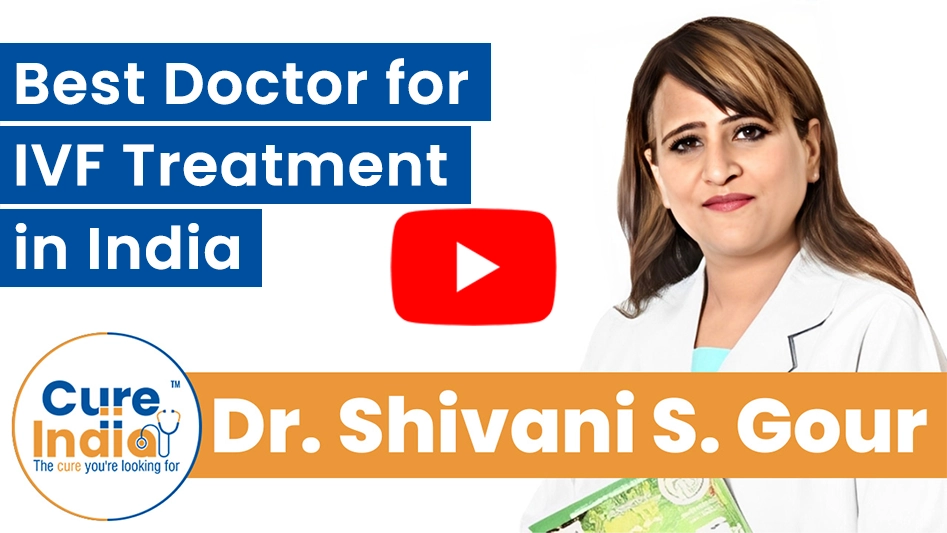
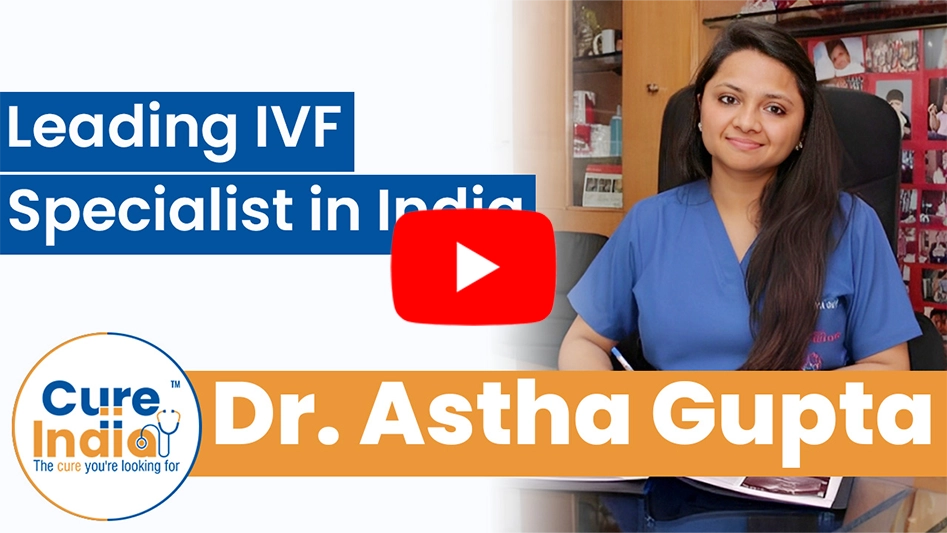
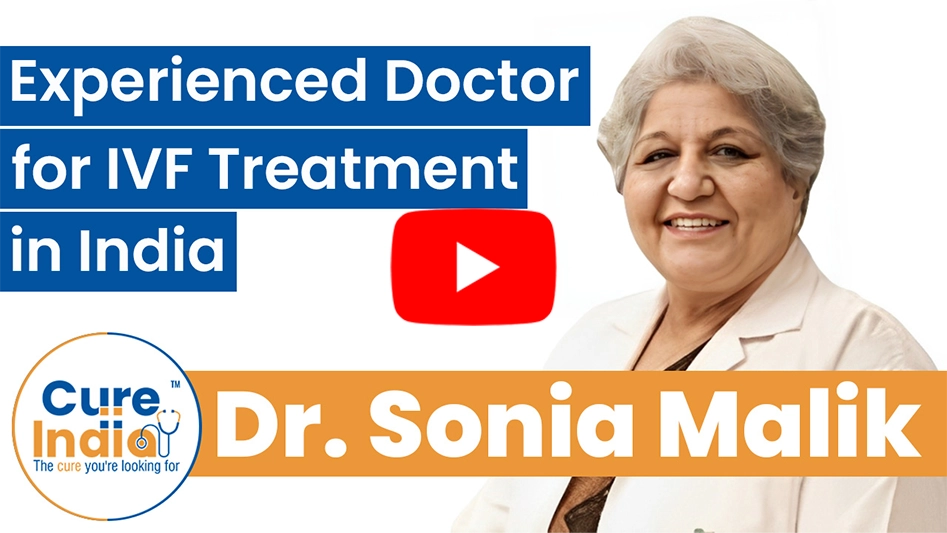
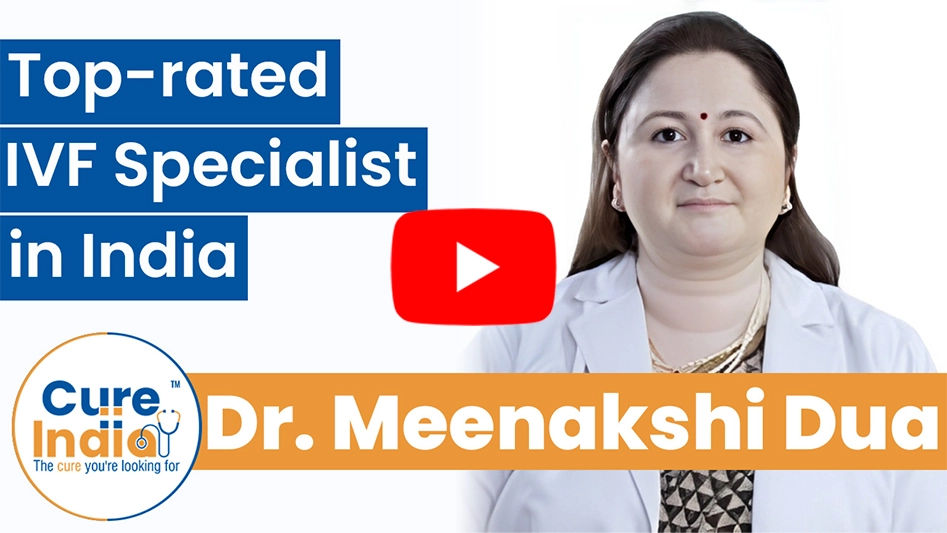
CureIndia is the most trusted platform in India for treatments related to in vitro fertilisation process. We are associated with top infertility specialists who are internationally trained and widely experienced. We have been working with pioneering infertility clinics equipped with state of the art labs and medical infrastructure. We are proud to maintain excellent success rates for IVF and other fertility-related procedures for International patients all over the world.
| Treatment | Cost in India | Stay in India |
|---|---|---|
| ICSI + IVF Procedure in India | $3,500 - $4,000 | 6 Weeks |
| Egg Donor IVF Procedure in India | $5,500 | 7-8 Weeks |
| Micro TESE + IVF Procedure in India | $5,500 | 6-7 Weeks |
| Donor Sperm + IVF Procedure in India | $4,500 | 6-7 Weeks |
For the women who are not able to conceive through regular unprotected intercourse or after 12 cycles of artificial insemination, female infertility treatment like IVF is ideal for them.
Depending upon the situation, IVF can use one of the following combinations to give you a successful pregnancy:
In vitro fertilisation treatment is needed in infertile couples in cases of:

In vitro fertilization treatment in India is one of the more widely used ART techniques with the highest success rates. A combination of medical and surgical procedures are used to fertilise the egg with the sperm. Later, the fertilised egg is implanted in the uterus for conception.
The results of in vitro fertilization in India are positive in the first attempt only but in some cases, the patient is not able to conceive. In such cases, the IVF cycle is repeated.
IUI is a fertility treatment which is carried out to increase the chances of conception. The most common reason for IUI is low sperm count or decreased sperm mobility. As it involves the placement of sperm directly inside a woman’s uterus, the chances of conception are high. However, IUI may be selected for the treatment of the following conditions as well:
A hostile cervical condition, including cervical mucus problems. Cervical scar tissue from past procedures which may hinder the sperms’ ability to enter the uterus
ICSI is quite similar to the traditional IVF procedure that involves the collection of gametes from each partner. The only difference between both is the method of achieving fertilization. In ICSI, a single sperm is picked up with a fine glass needle under the microscope and is directly injected into the egg. By this method, the ability of the sperm to penetrate the egg is no longer important as this has been assisted by the ICSI technique.
In case the age of the female partner is more because of which eggs are not produced or the female has reached pre menopause, then one has to go for donor ages from a female. In such cases the donor eggs are fertilized with the husband’s sperm, which them becomes an embryo and transferred to a formerly prepared uterus.
In case the male partner is suffering from Azoospermia or what is known as zero sperm, and procedures such as advanced sperm extraction like TESA and M-TESE have failed. In all such cases the only option is to go for donor sperm. Sperm from a healthy donor is taken and used to impregnate the female directly via IUI technique if the age of the female is less, or else used for IVF+ICSI if the age of the female is more.

ART treatments involve obtaining the sperm from the male and inserting it into the female genital tract. It is also used to perform IVF or ICSI.
In TESA, a needle is inserted in the testicle and tissue/sperm are aspirated. This in vitro fertilization treatment in India is done under local anaesthesia. This procedure is useful for cases where there is very less sperm available in the male.
Microsurgical testicular sperm extraction (microTESE) is a surgical procedure used to retrieve sperm from the seminiferous tubules of a male’s testes. It’s used for men with non-obstructive azoospermia, which is when a man cannot produce enough sperm to have a detectable amount in his semen — a common cause of male infertility.
If no sperm can be extracted from the male using any of the procedures mentioned above, then the last resort is to use donor sperms. Healthy sperms are taken from a donor and is used to fertilize the eggs from the female partner in a controlled environment.
If the physiology or morphology of the sperms is poor, then we can use advanced sperm selection techniques like PICSI or Microfluidics.
Apart from age, the likelihood of success of in vitro fertilization treatment in India depends on factors including:
Embryos with genetic or chromosomal problems are extremely weak and they do not work for this treatment
In many cases when IVF procedure fails, the reason is poor implantation. It is because the growth of embryo stops if the eggs are transferred carelessly. Implantation problems are faced by 50 per cent of patients
With increasing age such as above 40, success rates decrease widely in IVF.
In a few cases, ovaries do not respond well to IVF medications. As in the case of a female who cannot produce multiple eggs in response to IVF injections.
If you are planning to have a baby through IVF then, IVF Predict provides an online calculator to give you some idea about how likely IVF is to be successful.
There’s no need to worry. IVF treatment in India is performed by highly experienced fertility specialists using advanced techniques and state-of-the-art technology. Clinics maintain international safety standards and boast excellent success rates, making the process safe and effective.
It’s important to understand that pregnancy loss can occur in both natural and IVF pregnancies, often due to chromosomal differences in the embryo. The good news is that advanced screening techniques in India such as PGT can help identify the healthiest embryos, which significantly reduce this risk and improves outcomes.
IVF can increase the chances of twins or more, especially when multiple embryos are transferred. While this can bring extra excitement, it can also involve additional monitoring and care.
The great news? Many clinics now offer single embryo transfer options, which reduce the risk of multiple births while maintaining high success rates, in turn keeping both mother and baby safe.
In-vitro fertilisation process is one of the most successful Assisted reproductive technology (ART) procedures in the world. Although the results of it depend on so many factors including the qualities of sperms and eggs, the thickness of the endometrial wall, etc, in most cases the procedure proves to be successful. Living a healthy and stress-free lifestyle would increase your chances of having a baby through IVF process.
The number of eggs and sperms becomes limited after 40, but that does not mean you cannot conceive after 40. Several women had crossed 40 while trying naturally or through other means. But they finally became proud parents after 40 with the help of in vitro fertilization process.
You, too, can enjoy motherhood if you want, even if you have crossed the age bar of 40. Once you convince yourself that you, too, can be a mother through IVF, start looking for the right IVF center. Whether you can be a mother depends on your body, not on any online search. Finalize the clinic that has the highest success rate and fits your budget.
Do not hesitate and fix an appointment with your doctor. They will check your medical history thoroughly and prescribe you some further tests. If the test results are on your behalf, close your eyes and trust your doctor. They are specialists sitting in the hospitals to guide you.
Your doctor will give you a personalised routine of diet and medication. You will need to follow that wholeheartedly. Keep all the negativities out of your radar. Get a break from your busy life and take a good rest. Freshen up your soul with your favorite relaxing hobby. With the proper guidance and the right care, you will become your dream child's parent. Please take note of every change in your health during the IVF session and pregnancy and relay it to your doctor.
There isn’t any difference between the test tube baby and IVF. In vitro fertilization helps people with fertility problems to have a baby. The father’s sperms and mother’s egg are fertilized in a test tube clinically by an expert, therefore the baby conceived is called a test-tube baby.
Apart from providing the best in vitro fertilization treatment in India to the patients who are coming miles for having a baby with us, we provide complementary services like:


IVF/IUI/ICSI
Best IVF packages
Be proud parents
Consult Infertility Specialists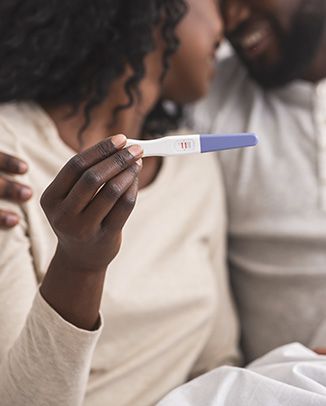
Thousands of successful IVF deliveries
Consult top IVF Clinics